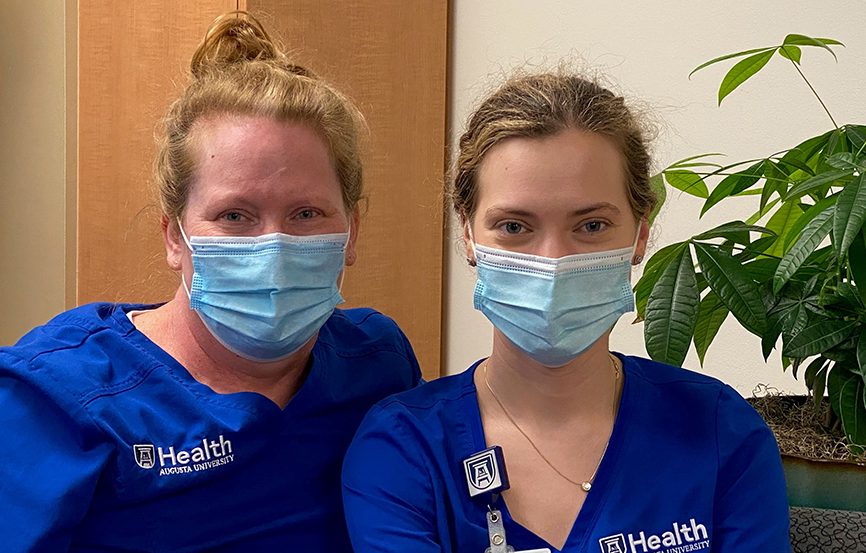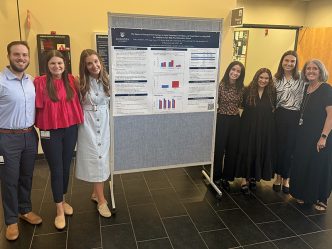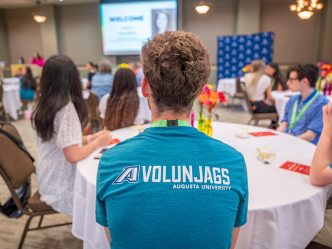Editor’s Note: The field of occupational therapy is anything but limited. This month, Jagwire will be spotlighting the occupational therapists who make quality and compassionate patient care possible.
OTs Terri Glenn and Bentlie Grice work in Acute Care at Augusta University Health. They always try to educate people in what they do.
“Occupational therapy is focused on helping the patient do whatever they want or need to do. We consider anything someone does during the day an ‘occupation,’” said Glenn.
Activities such as getting dressed, taking a shower, balancing a checkbook, driving a car, caring for children, knitting, playing piano, playing soccer, gardening and other activities are all considered occupations.
“Our job is to help people do those to the fullest of their abilities to give them quality of life, life purpose and general life happiness,” said Glenn.
Even if the patient physically is not going to regain the abilities they had before their illness, OTs look at how to adapt activities specifically tailored to each unique patient.
“We really try to take a holistic view of the patient as well and look at their environment to adapt things so that they can be as independent as possible,” said Grice.
Glenn has worked at AU Health for six years and said she chose to work in occupational therapy “because I loved to meet people where they are to provide client-centered care. This field specifically allows a unique opportunity to really step into the client situation and figure out what’s valuable to them and get them to be able to do that.”
Grice has worked at AU Health for four months and said she chose occupational therapy after a conversation with a woman whose father had his life changed by the work of OTs.
“I just thought, here’s a man who raised a family, lived a life, worked, provided — and the thing that he was most excited about was putting on his socks by himself. That was an OT that gave him that,” she said.
The occupational therapy acute care viewpoint is that “any diagnosis that someone has in this hospital, we have a place for you. There is something that we can do to enhance that patient’s recovery and enhance that person’s life to bring them back to normal or as close to normal as we can get them,” said Grice.
 Augusta University
Augusta University




